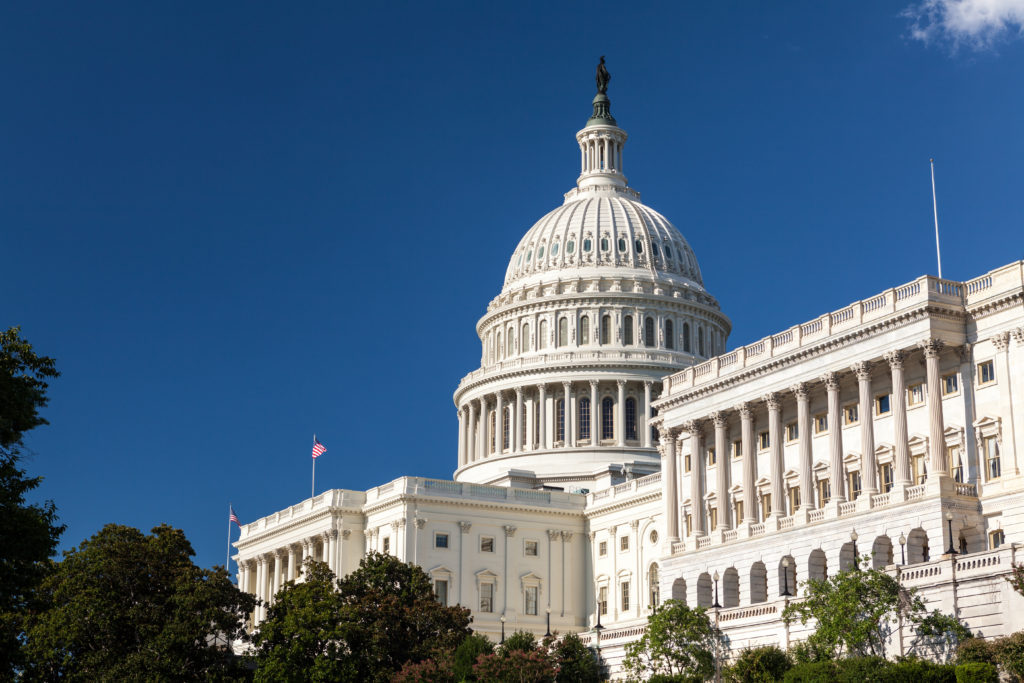“PASS” Act to Repeal the DOL Fiduciary Rule Moves to U.S. House Floor
October 13, 2017 | James Sprow | Blue Vault

Representative Ann Wagner’s Protecting Advice for Small Savers (PASS) Act of 2017 (H.R. 3857) has passed the House Financial Services Committee in a straight party-line 36-34 vote and will now proceed to the House floor. The bill would replace the DOL fiduciary rule with a best interest standard of conduct for brokers and gives fiduciary rulemaking jurisdiction to the Securities and Exchange Commission. The bill would also prevent the Treasury Department and the DOL from implementing fiduciary regulations for broker-dealers under ERISA (The Employee Retirement Income Security Act of 1974).
Rep. Wagner introduced on September 27 her bill to repeal the Labor Department’s fiduciary rule.
Wagner said on Sept. 7 that she would introduce her bill, the Protecting Access for Small Savers Act, which keeps a fiduciary rulemaking under the Securities and Exchange Commission’s jurisdiction, by the end of September and would push for a speedy markup.
Wagner’s bill establishes a best-interest standard for broker-dealers, Wagner said during an event held at the U.S. Chamber of Commerce in Washington on Sept. 7, and repeals Labor’s rule, “period. Full stop. And it gets the Department of Labor out of the broker-dealer space.”
Introduction of her bill came just a day after SEC Chairman Jay Clayton told senators that harmonizing a fiduciary rule with Labor is a top priority for him. “A lot of the themes you outlined [in the PASS Act] are the themes that I have,” Clayton told Rep. Wagner during an October 4th hearing. He then noted that any joint-rulemaking efforts conducted with the DOL must adhere to four principles: choice, clarity, consistency, and coordination.
As Wagner stated in early September, her bill proposes “a best-interest standard for all broker-dealers and their entire portfolio of investment vehicles — investment and retirement. A best-interest standard for all broker-dealers that Congress sets.”
That standard, she continued, would require recommendations made to retail customers that “reflect reasonable diligence,” as well as reflect “the reasonable care, skill and prudence that broker-dealers would exercise based on a customer’s investment profile.”
The types of compensation the advisor receives would also have to be disclosed under the bill, and advisors would be required to “clarify any conflict of interest that may exist,” Wagner said.
Her legislation, she added, would state that the SEC and FINRA would become the rightful regulators and enforcers of this [best-interest] standard.
The U.S. Chamber of Commerce, Financial Services Roundtable, Securities Industry and Financial Markets Association, Financial Services Institute, National Association of Insurance and Financial Advisors, American Counsel of Life Insurers, and the Investment Company Institute, have all expressed support for the PASS Act.
In addition to the PASS Act, the Financial Services Committee passed the Fair Investment Opportunities for Professional Experts Act (H.R. 1585), which expands the definition of accredited investor to include state-licensed financial services professionals and those with professional knowledge relating to a particular investment. The panel also passed the Senior Safe Act of 2017 (H.R. 3758) which gives legal protection to advisors who disclose financial exploitation of senior citizens.
The President has asked for a review of the DOL fiduciary rule which attempts to reduce conflicts of interest in retirement investment advice and redefines who is considered an investment advice fiduciary under ERISA. Opponents of the rule have made the argument that it will prevent investors with relatively smaller portfolios from receiving the advice they need due to the resulting changes in fee structures for complying financial advisers from commission-based fees to fee based accounts. Full implementation of the rule was recently delayed for 18-months until July 1, 2019.

Delay in Fiduciary Rule Implementation Causing Issues
ALERT: DOL Fiduciary Rule Delay Published
House committees ready two assaults on DOL fiduciary rule this week











